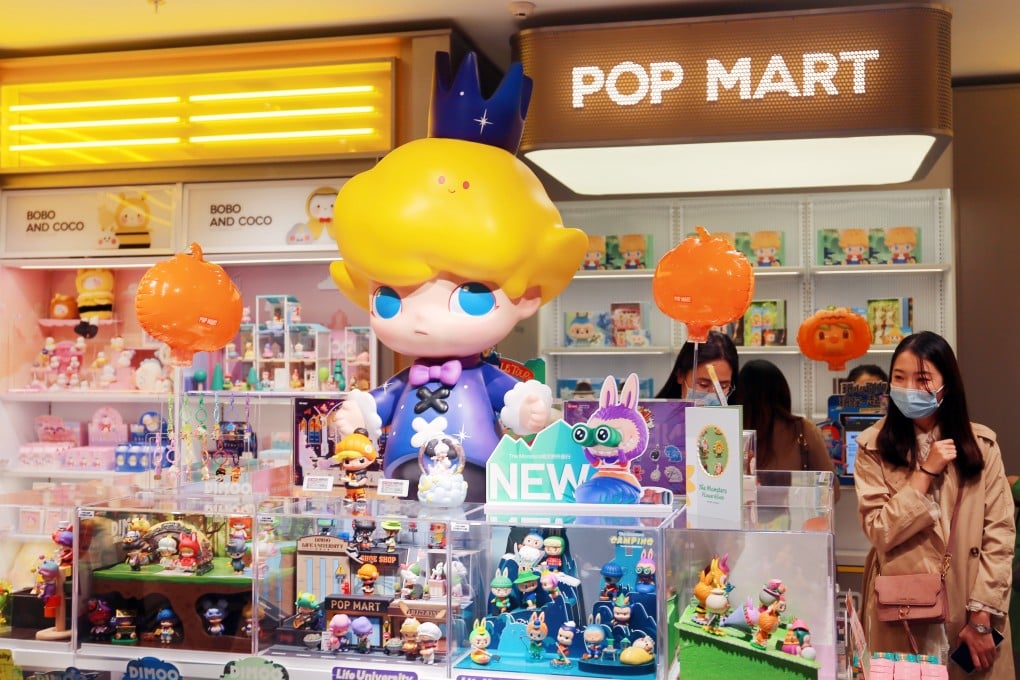Chinese toymaker surpasses makers of Barbie, Transformers and Hello Kitty in value after solid Hong Kong IPO
- Beijing-based Pop Mart raised HK$5.02 billion through the sale of 135.7 million new shares at top end of guidance
- Company to use IPO proceeds to expand distribution channels, intellectual property rights pool

The stock more than doubled in opening trades in Hong Kong to as high as HK$81.75 versus its initial public offering price of HK$38.50. It closed at HK$69, giving it a market value of HK$95.3 billion (US$12.3 billion). Based on the current market price, the 10-year old Beijing-based company is worth more than Hasbro Inc, which makes childhood favourites such as G.I. Joe, Play-Doh and Transformers, and Mattel Inc, the maker of household brands including Barbie, Hot Wheels and Uno.
Their market capitalisation stood at US$12.2 billion and US$5.5 billion respectively, based on Thursday’s closing prices in New York, according to Bloomberg data. Both were founded before the Second World War. Tokyo-based Sanrio Co, founded in 1960 and owner of Hello Kitty, is worth the equivalent of US$1.3 billion.

01:19
18-metre giant Gundam robot takes its first steps in Japan
“We have carved out a market for ourselves by selling toys to adults, not children,” said Wang Ning, its 33-year-old founder and chief executive, said in an interview. “People thought this was impossible to do – but we saw an emerging market for designer toys among free-spending young Chinese consumers.”
China’s designer toy market size stood at 20.7 billion yuan (US$3.2 billion) in 2019, with an average annual growth rate of 35 per cent, and was expected to reach 76.3 billion yuan in 2024, according to its IPO prospectus, citing research by consulting company Frost & Sullivan.
Pop Mart raised HK$5.02 billion in its IPO by selling 135.7 million new shares at HK$38.50 apiece, the top -end of its price guidance.
It has exclusive as well as non-exclusive licences, and its toys are often collected by children as well as adults. Last year, it reported sales of 1.68 billion yuan, more than triple the 514 million yuan in 2018. Its net profit of net profit of 451.1 million yuan last year represents a fourfold increase over that of 2018.